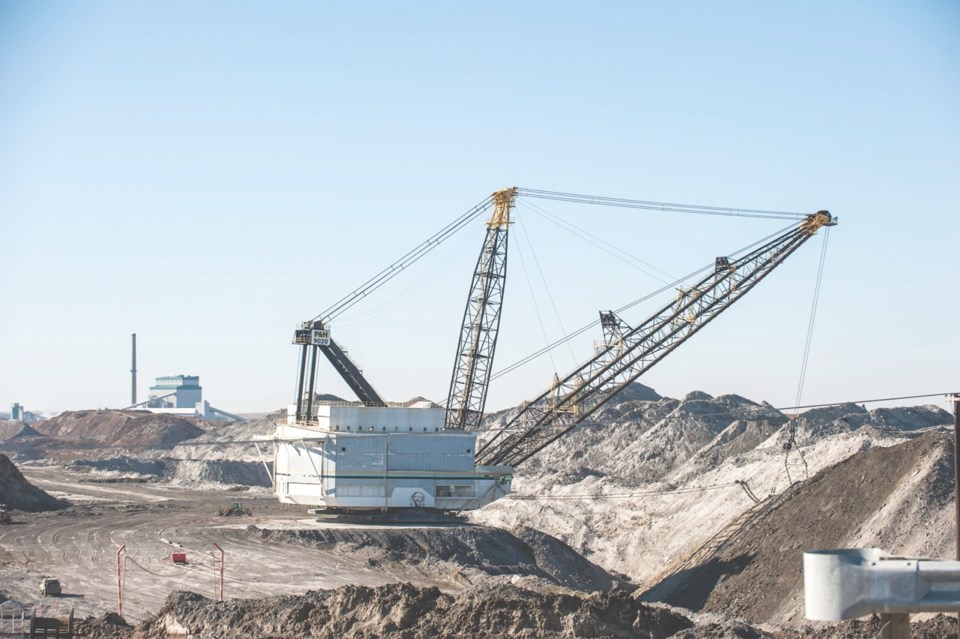The federal government has announced additional funding through the Canada Coal Transition Initiative (CCTI) for Estevan and other communities affected by the transition away from coal-fired power generation.
Through Western Economic Diversification Canada, the Government of Canada said Friday it would help communities in southeast Saskatchewan and Alberta's Cactus Corridor region attract investment, expand local businesses and create jobs.
A total of $5.8 million will be allocated to 12 economic development, training and career support initiatives in the two provinces.
The City of Estevan will receive more than $1 million.
"This coal transition funding from the federal government is appreciated,” said Mayor Roy Ludwig in a news release. “The funding will be used at the direction of the economic development board through their strategic plan to help diversify and make economic opportunities for Estevan and area.
“With the approaching closures of units 4 and 5 at the Boundary Dam Power Station, it is critical that we look at diversification and all opportunities for our community. We will continue to encourage the pursuit of carbon capture and other technologies, which will allow us to produce green energy moving forward."
The funding for the city includes $350,000 to conduct an assessment of the region's assets, enhance the city's brand, and complete a marketing strategy and action plan; $560,000 to complete a feasibility study and assess the economics of a carbon capture natural gas facility in the Estevan area with Eight Rivers Capital; and $150,000 for a feasibility study of short line rail in the region that would connect Estevan with markets in the U.S.
Ludwig said the city knew that there was money coming from the feds, in addition to what Estevan received from the federal government in 2019. Now there will be discussions with the coal transition committee and with the economic development board. And the new council will need to continue to have discussions.
Ludwig said the city has a lot of moving parts when it comes to economic development, such as the rural technology hub and the business incubator that is already in place.
“We are excited looking at some of these potential opportunities, and as we get them nailed down, we will definitely be going public as soon as we can do so,” Ludwig said.
The city will continue to meet with the federal government to discuss continued options for Estevan.
“We have people that even locally are coming to us with proposals, so we’re submitting these proposals through the federal transition committee, through the provincial funding committee, and we’re continuing to move forward on that front,” said Ludwig.
Also, the RM of Estevan will receive $350,000 in funding to develop economic and community strategies for rural municipalities in the Estevan region.
There is also $800,000 for the Southeast College to establish a heavy equipment operator training program at its Estevan campus. This project was announced earlier this month, with funding from the local coal transition committee.
“Our project team has been working diligently for the past few months on a number of outcomes related to the establishment of our heavy equipment operator program including curriculum development, identification and sourcing of capital equipment, development of a comprehensive marketing and recruitment plan and the initial identification of potential program partners,” said Patrick Stoddart, the president and CEO of the college. “We are very excited to welcome our first cohort of students for spring 2021 and we look forward to providing quality future employees to assist in supporting the local economy in southeast Saskatchewan for many years to come.”
Heavy equipment operators work in construction and maintenance of roads, bridges, pipelines and buildings, as well as in mining, manufacturing, construction and materials handling work. Annual estimates for wages vary from $41,600 to $79,040.
There will also be $677,880 to the United Mineworkers of America Local 7606 and International Brotherhood of Electrical Workers Local 2607 to establish a transition centre for coal workers in the Estevan and Coronach region (the next edition of the Mercury will have more on this story).
The Sunrise Community Futures Development Corporation will receive $280,000 in additional funding to support its targeted business and community advisory services in southeast Saskatchewan. This project was original announced in September 2019.
The federal budget earmarked $35 million over five years for the CCTI to support skills development and economic diversification activities to help workers and communities adapt to what the federal government called a transition to a low-carbon economy.




